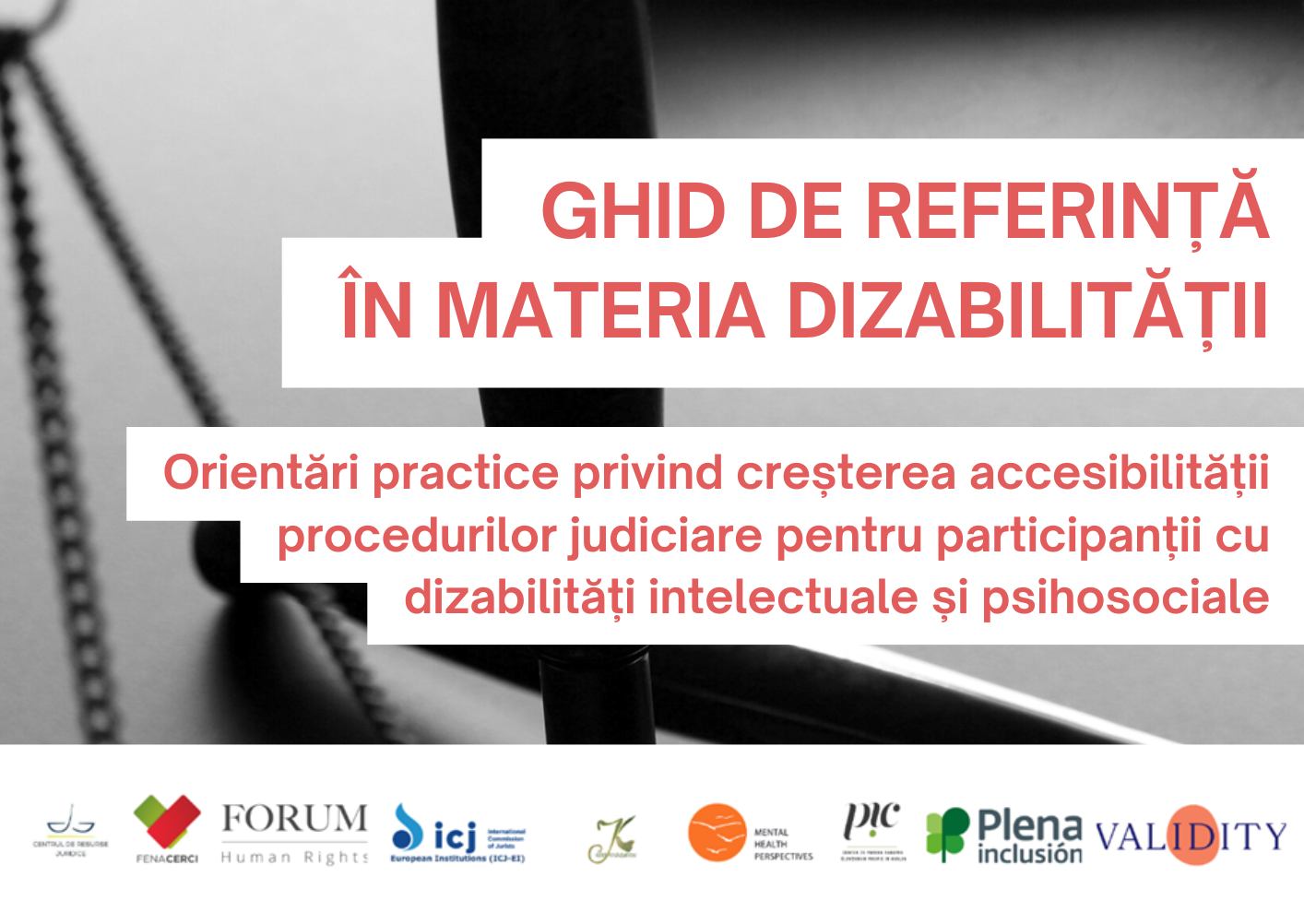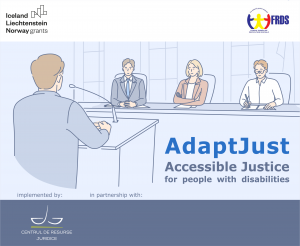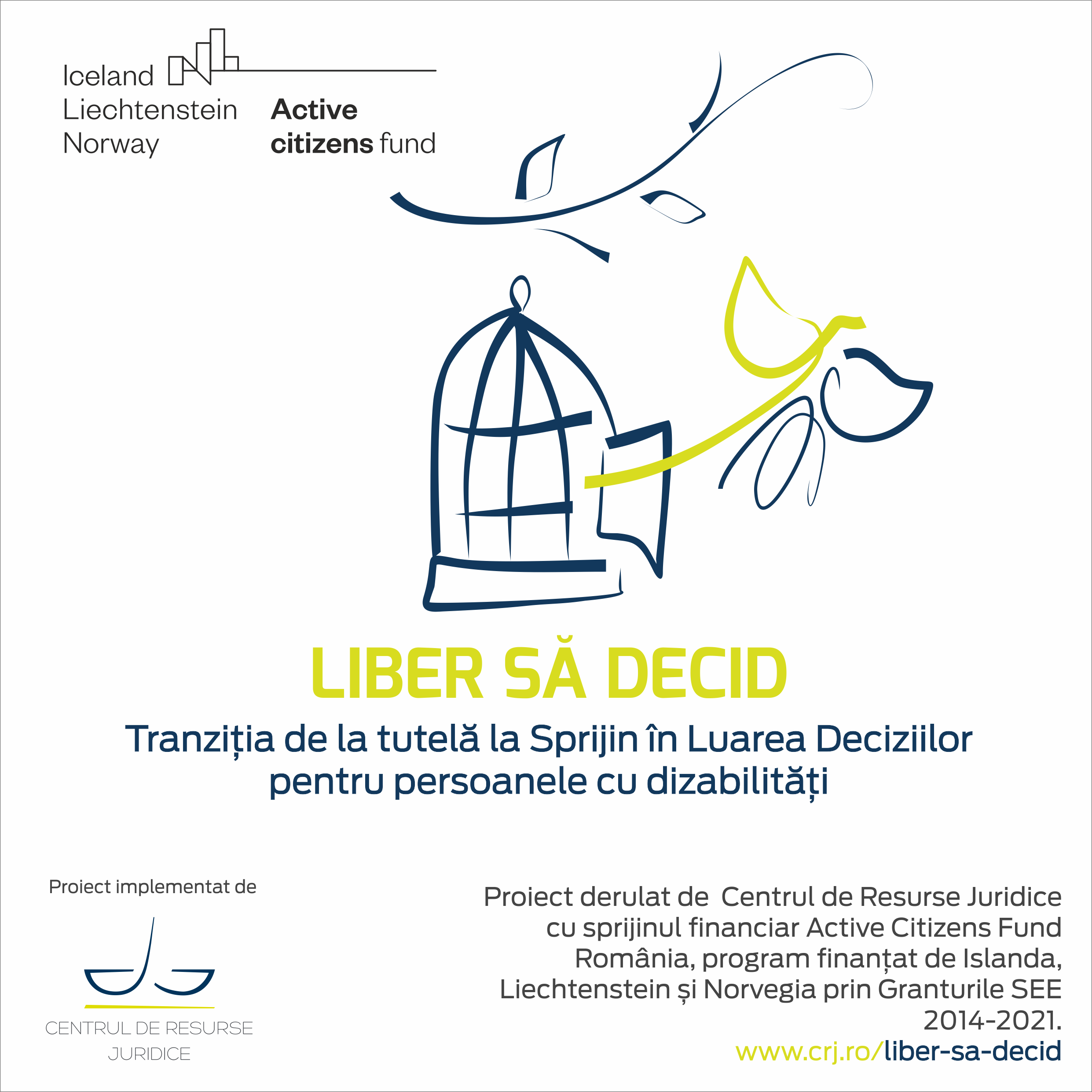Context
Irrespective of whether they are victims of, witnesses to or alleged perpetrators of crime, persons with disabilities have significant difficulties in accessing justice and engaging with criminal justice actors (CJA). At the same time, while reported to be four to ten times more likely to be abused (including sexually) than their peers without disabilities[1], individuals with psychosocial and intellectual disabilities – especially those placed in residential settings[2] – face significant exclusion from justice processes and violations of their fair trial rights[3]. Outdated laws do not recognise the legal capacity and standing of individuals with psychosocial and intellectual disabilities, and omit to detect the disability and provide the needed support to access information and communicate. Further, outdated laws do not offer procedural accommodations, they lack access to effective legal advice and perpetuate attitudinal barriers of the CJA. Their lack of specialisation, trainings[4]are among the systemic challenges faced by persons with intellectual and psychosocial disabilities that are participating in criminal proceedings in the EU.[5]
At the same time, the UN Convention on the Rights of Persons with Disabilities[6] (CRPD), which was ratified by the European Union[7] and all its Member States without reservations[8], places significant obligations on states to identify and eliminate obstacles or barriers and take proactive, systemic measures to ensure that all persons with disabilities can equally exercise their right to access to justice. Nevertheless, although the relevant EU Directives[9] and Member-states’ legal frameworks recognise the need to support the access to justice of the people with hearing, sensory or physical disabilities, the legislation remains silent to the specific needs and barriers of persons with intellectual and psychosocial disabilities. This is despite that – very often – the same type of measures are provided throughout the criminal proceedings to other vulnerable groups, such as minors or women-victims of domestic or sexual violence.[10] For those few states that have put in place support mechanisms, the measures extend only to persons with intellectual and psychosocial disabilities that participate in proceedings as victims, leaving outside other participants.[11] There are also countries that have gone ahead to regulate some of these vitally important support mechanisms, allowing CJA to use the services of a professional facilitator who assesses the participants needs and carry out the accommodation tasks[12] or to use procedural documents written in accessible language[13].
Despite these setbacks, we see that many CJA from all assessed countries continue to provide support measures to the participants in criminal proceedings with intellectual and psychosocial disabilities, including defendants. Despite the lack of legislation and necessary national regulations, the CJA use accessible language, or speak at a slower pace to allow information to process; they also collaborate with specialized NGOs to assess accommodation needs and allow family members to support the participants with intellectual and psychosocial disabilities throughout the criminal process.
In Romania, access to justice continues to require improvements and additional safeguards so that all individuals can enjoy effective access to judicial proceedings. For defendants with intellectual and/or psychosocial disabilities, the barriers to effective and unrestricted access to justice are even more evident, as, beyond the general shortcomings of the national judicial system, there are specific shortcomings that hinder the proper functioning of judicial procedures for persons with disabilities.
A primary shortcoming can thus be noted at the legislative level, as Romanian legislation deals superficially with the situation of cases involving suspects or defendants with intellectual and/or psychosocial disabilities; moreover, no data are collected on the number of persons with disabilities involved in judicial proceedings, so as to identify the procedural challenges and their frequency. In addition, there is little or no concern for training legal professionals in dealing with people with intellectual and/or psychosocial disabilities.
While the challenges of the justice system arise in relation to all categories of litigants, this bench book will focus on the limitations of access to justice for suspects and defendants with intellectual and/or psychosocial disabilities.
The purpose of this Bench Book is to inform CJA and other relevant Romanian stakeholders about best practices to ensure the effective participation of the defendants with intellectual and psychosocial disabilities in criminal proceedings. The findings are the result of a thorough analysis of the situation in eight EU countries, including Bulgaria, Czechia, Lithuania, Portugal, Romania, Slovakia, Slovenia, and Spain, while the solutions proposed are based on relevant international and regional standards and reflect best practices collected globally.
Who is this Bench Book for?
The key audience for this Bench Book is judges, prosecutors, lawyers, law enforcement officers, officials of the National Penitentiary Administration[14] and other professionals (broadly referred to as “criminal justice actors”) working on criminal cases involving defendants with intellectual and/or psychosocial disabilities. While the focus of this Bench Book is on defendants in criminal justice settings, the principles, standards, and recommendations made herein may be applicable to other participants in criminal proceedings who experience these types of disabilities, such as injured persons and witnesses, as well as in broader contexts, including in civil proceedings.
How to use this Bench Book?
The Bench Book is designed to be a practical guide for the CJA of Romania, in their work on cases involving persons with intellectual and/or psychosocial disabilities, which experience multiple barriers – legal, environmental, informational, attitudinal – and require additional support to realise equally their right to access to justice.
The Bench Book offers the CJA some practical tools to tackle each of those systemic barriers, in order to enable defendants with intellectual and/or psychosocial disabilities to participate equally in proceedings.
Bench Book Overview
This Bench Book is structured as follows:
Chapter 2 – Rights of Persons with Disabilities: International and EU Legal Framework – provides an overview of the main fair-trial rights and guarantees granted to the defendants with disabilities.
Chapter 3 – Persons with intellectual and/or psychosocial disabilities and the justice system – provides an overview of the barriers that people with disabilities face in realizing their right to access justice.
Chapter 4 – Implementing procedural rights for defendants with disabilities – identifies practical tools to enable defendants with intellectual and/or psychosocial disabilities to overcome these barriers, including identification of disability and support needs, provision of procedural accommodations, accessible information, etc.
Chapter 5 of the Bench Book includes a few annexes:
- the schematic algorithm of needs assessment and provision of accommodations throughout the criminal proceedings (Annex 1)
- a checklist for Criminal Justice Professionals working with defendants with intellectual and psychosocial disabilities in criminal proceedings (Annex 2)
- to explain most common barriers and adjustments required by people with intellectual disabilities (Annex 3)
- relevant case-law of the European Court of Human Rights – persons deprived of their liberty (Annex 4)
- share contacts of the relevant resource organizations in your country to support you in the implementation of the right to access to justice for people with disabilities (Annex 5)
- to provide you with useful sources of information for further reading (Annex 6).

NATIONAL disability benchbook
Sources:
[1] https://disabilityjustice.org/justice-denied/abuse-and-exploitation/
[2] Amelink Q, Roozen S, Leistikow I, Weenink JW. Sexual abuse of people with intellectual disabilities in residential settings: a 3-year analysis of incidents reported to the Dutch Health and Youth Care Inspectorate. BMJ Open. 2021 Dec 6;11(12):e053317. doi: 10.1136/bmjopen-2021-053317. PMID: 34873008; PMCID: PMC8650479.
[3] Smith, T. (2023). Autism and Criminal Justice. The Experience of Suspects, Defendants and Offenders in England and Wales. Routledge.
[4] International Synthesis Report, ENABLE, https://validity.ngo/wp-content/uploads/2024/08/Executive-Summary-International-Synthesis-Report.pdf
[5] International Synthesis Report, ENABLE, https://validity.ngo/wp-content/uploads/2024/08/Executive-Summary-International-Synthesis-Report.pdf
[6] UN General Assembly, Convention on the Rights of Persons with Disabilities : resolution / adopted by the General Assembly, A/RES/61/106, 24 January 2007, https://www.refworld.org/legal/resolution/unga/2007/en/49751
[7] The European Union ratified the CRPD on 23 December 2010.
[8] With some exceptions mentioned here:
https://treaties.un.org/pages/ViewDetails.aspx?src=TREATY&mtdsg_no=IV-15&chapter=4&clang=_en
[9] Directive on the right to interpretation and translation in criminal proceedings (2010/64/EU); Directive on right to information in criminal proceedings (2012/13/EU); Directive on the right of access to a lawyer in criminal proceedings (2013/48/EU); Directive on strengthening of certain aspects of the presumption of innocence and on the right to be present at the trial in criminal proceedings (2016/343/EU); Directive on legal aid for suspects and accused persons in criminal proceedings (2016/1919/EU); Directive on procedural safeguards for children suspected or accused in criminal proceedings (2016/800/EU)
[10] e.g. the Directive 2010/64/EU on the right to interpretation and translation guarantees the right to a foreign language interpreter and assistance for people with hearing or speech disabilities in criminal proceedings. Cognitive barriers—difficulties understanding procedures and providing accommodations — are left out. Similarly, the Directive 2012/13/EU on the right to information in criminal proceedings ensures defendants with hearing or speech disabilities have access to information about their rights, accusations, and case materials. The directive as well does not require this information to be accessible for defendants with cognitive barriers.
[11] International Synthesis Report, ENABLE, https://validity.ngo/wp-content/uploads/2024/08/Executive-Summary-International-Synthesis-Report.pdf
[12] Spain National Study, Enable project, April 2023, p.29
[13] Lithuania National study, Enable project, April 2023, p.9.
[14] They may not be classified as criminal justice actors, but the person who works in a National Penitentiary Administration unit, at the level of the Convicted Offenders Registry Service, must be aware of the existence of persons with disabilities and the most appropriate way of working with them.






